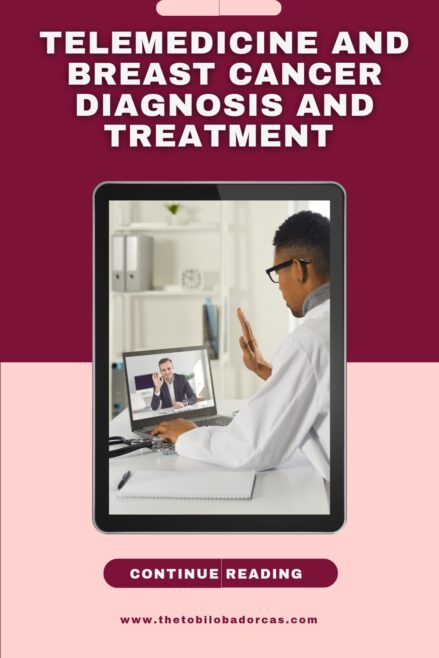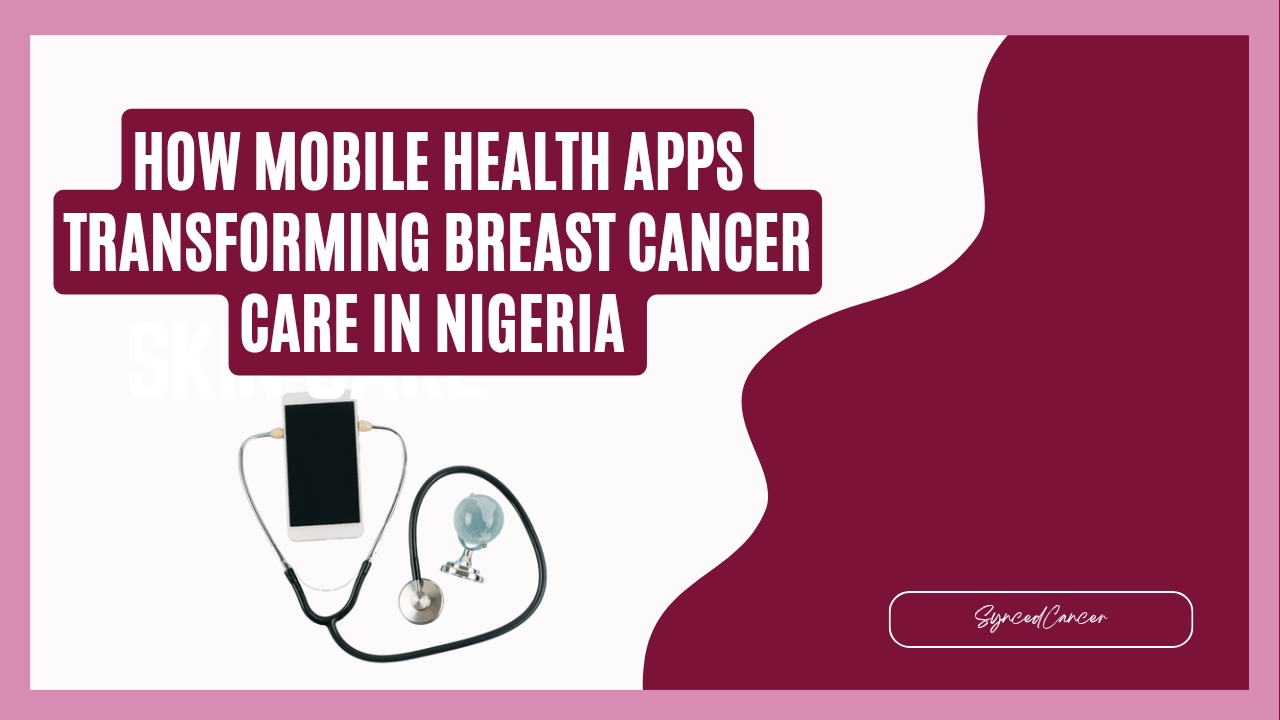Breast cancer is a significant health issue worldwide, with a particularly profound impact in developing countries like Nigeria. In recent years, the advent of mobile health (mHealth) applications has revolutionized healthcare delivery across various domains, including breast cancer care. These apps leverage the widespread use of mobile phones to provide medical support, information, and management tools to patients and healthcare providers. This essay explores how mobile health apps are transforming breast cancer care in Nigeria, highlighting their benefits, challenges, and potential future developments.
The Burden of Breast Cancer in Nigeria
Breast cancer is the most common cancer among women in Nigeria and one of the leading causes of cancer-related deaths. Several factors contribute to the high mortality rate, including late-stage diagnosis, limited access to healthcare facilities, inadequate diagnostic tools, and a shortage of specialized healthcare professionals. Cultural beliefs and stigma associated with cancer also play a significant role in delayed diagnosis and treatment. Addressing these challenges requires innovative approaches, and mHealth apps have emerged as a promising solution.

The Role of Mobile Health Apps in Breast Cancer Care
- Awareness and Education: One of the primary benefits of mHealth apps is their ability to disseminate information and raise awareness about breast cancer. These apps provide educational content on risk factors, symptoms, self-examination techniques, and the importance of early detection. By making this information readily available, mHealth apps empower women to take charge of their health and seek medical attention promptly if they notice any concerning symptoms.
- Early Detection and Screening: Early detection is crucial for improving breast cancer outcomes. mHealth apps can facilitate early detection by offering tools for regular self-examinations and reminders for clinical screenings. Some apps include interactive features that guide users through self-examination procedures and provide visual aids to help identify abnormalities. Additionally, these apps can connect users with local screening centers and allow them to schedule appointments, reducing barriers to accessing preventive care.
- Patient Support and Engagement: Breast cancer treatment often involves a complex and prolonged process, which can be overwhelming for patients. mHealth apps offer various support features, such as medication reminders, symptom tracking, and personalized care plans. These tools help patients adhere to their treatment regimens and manage side effects effectively. Moreover, some apps include forums or chat functions that enable patients to connect with others undergoing similar experiences, fostering a sense of community and emotional support.
- Remote Monitoring and Telemedicine: The geographic spread and infrastructural challenges in Nigeria can make it difficult for patients to access regular follow-up care. mHealth apps address this issue by enabling remote monitoring and telemedicine consultations. Patients can record their symptoms, treatment progress, and any concerns in the app, which healthcare providers can review remotely. This continuous monitoring allows for timely interventions and adjustments to treatment plans, improving patient outcomes.
- Data Collection and Research: mHealth apps can also contribute to breast cancer research by collecting anonymized data from users. This data can provide valuable insights into disease patterns, treatment efficacy, and patient outcomes. Researchers and healthcare policymakers can use this information to develop targeted interventions and allocate resources more effectively, ultimately enhancing the overall quality of breast cancer care in Nigeria.
Case Studies and Success Stories
To illustrate the impact of mHealth apps on breast cancer care in Nigeria, it is useful to examine specific case studies and success stories.
- The BreCaApp initiative
The BreCaApp initiative, launched by a coalition of Nigerian healthcare providers and technology companies, aims to improve breast cancer outcomes through a comprehensive mHealth platform. The app provides educational resources, screening reminders, and telemedicine consultations. Since its launch, BreCaApp has reached thousands of women across Nigeria, significantly increasing awareness and early detection rates. Users report higher satisfaction with their care and greater confidence in managing their health.
- Project PinkBlue
Project PinkBlue is a non-governmental organization (NGO) focused on cancer control in Nigeria. They have developed an mHealth app that offers support to breast cancer patients, including medication reminders, symptom tracking, and access to support groups. The app has been instrumental in improving treatment adherence and providing emotional support to patients, particularly those in remote areas. Through partnerships with local hospitals, Project PinkBlue has also facilitated remote consultations and follow-up care, reducing the burden on healthcare facilities.
Future Prospects
The future of mHealth apps in breast cancer care in Nigeria looks promising, with ongoing advancements in technology and increased recognition of their potential. Several initiatives and trends are likely to shape the future landscape:
- Artificial Intelligence and Machine Learning: The integration of artificial intelligence (AI) and machine learning (ML) into mHealth apps can enhance their capabilities. AI algorithms can analyze user data to provide personalized risk assessments, predict disease progression, and recommend tailored treatment plans. This level of precision medicine can significantly improve patient outcomes.
- Expanded Connectivity and 5G Technology: The rollout of 5G technology in Nigeria will enhance internet connectivity, enabling more reliable and faster access to mHealth apps, particularly in rural areas. This improved connectivity will facilitate real-time telemedicine consultations, remote diagnostics, and data transmission, making healthcare services more accessible.
- Public-Private Partnerships: Collaborations between the government, private sector, and non-governmental organizations (NGOs) can drive the development and implementation of mHealth apps. Public-private partnerships can provide the necessary funding, technical expertise, and infrastructure to scale up these initiatives and ensure their sustainability.
- Continuous User Feedback and App Improvement: Regular feedback from users is essential for refining and improving mHealth apps. Developers should establish mechanisms for collecting user feedback, conducting usability studies, and updating app features based on user needs and preferences. This iterative process will ensure that the apps remain relevant and effective.
Mobile health apps have the potential to transform breast cancer care in Nigeria by enhancing awareness, facilitating early detection, supporting patients throughout their treatment journey, enabling remote monitoring, and contributing to research. However, realizing this potential requires addressing challenges and integration with healthcare systems. With ongoing technological advancements and strategic collaborations, mHealth apps can play a pivotal role in reducing the burden of breast cancer in Nigeria and improving the overall health and well-being of its population.


What do you think?
It is nice to know your opinion. Leave a comment.